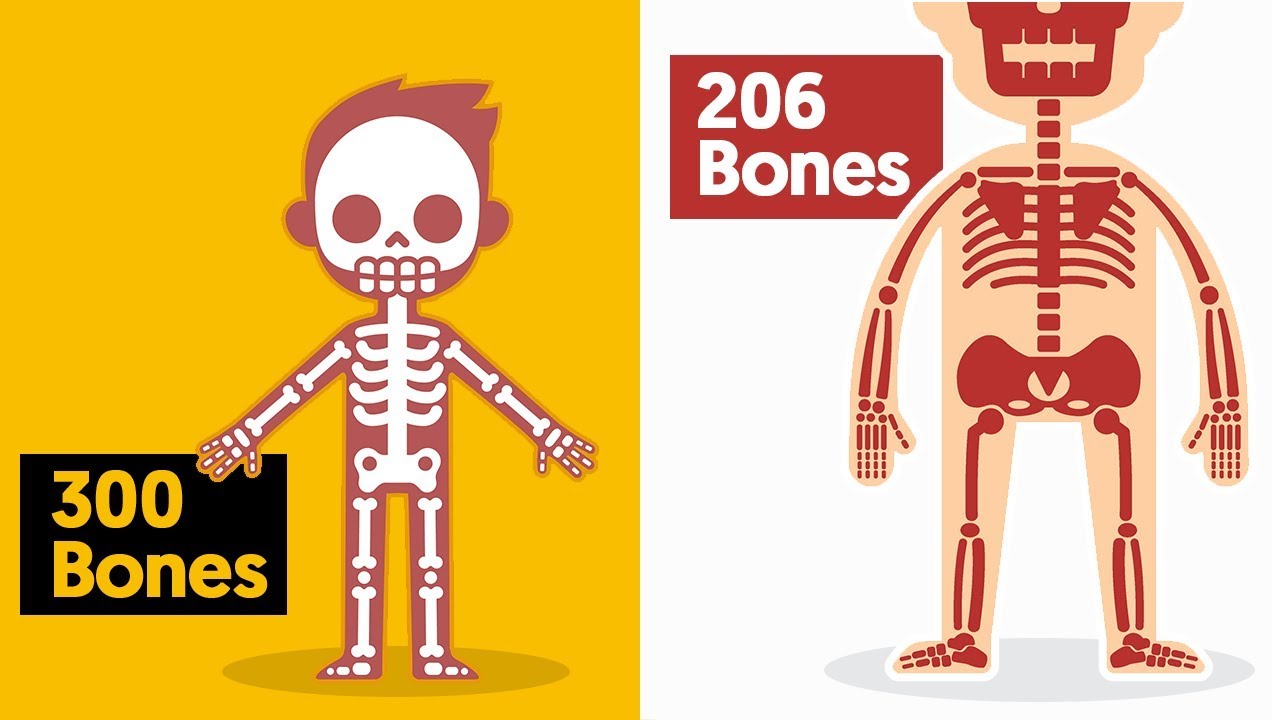Why do Babies Have More Bones Than Adults, and What Happens to Them?
This could be one of the weirdest questions you’ve heard in a pretty long time — it actually sounds like a joke, but it’s not!
Babies do have more bones than adults from birth.
Shocked? Well, whatever you feel right now is justifiable.
Babies are just way too “soft” to house more bones than adults, so this here is a weird fact!
Still in doubt? Well, this video will clear things up for you — let’s get started.
For starters, the adult human body has up to 206 bones whereas a baby is born with around 300 bones — 270 to be precise.
The thing is, babies have both large and small bones like adults, but the highlight is that they have many more of them.
The big question is, “why do they have more bones and what happens to them as time goes on?”
Well, as we mentioned earlier, babies come into the world with over 270 bones, but the number goes down to 206 when they reach adulthood.
Just so you know, the bones do not disappear magically — there’s actually a simple explanation for it.
First off, the reason behind the significantly higher number of bones in babies is attributed to cartilage.
Essentially, cartilage is a firm tissue which happens to be softer and much more flexible than bone.
This smooth, elastic tissue can be found in the rib cage, ears, nose and other parts of the body.
For the most part, babies are born with more cartilage which eventually turns into bone as they get older — the process is known as endochondral ossification.
The thing is, cartilage gets replaced by bone matrices as the baby grows — this is precisely why adults have fewer bones than babies.
It’s also good to point out that there are several different signs on the body that sheds more light on the difference in the number of bones in babies and adults.
One good sign is the soft spot babies usually have on their head.
What you should know is that this soft spot is a gap between the bones which eventually fuses together to form a single bone.
When you take a look at skull bones, you’ll find that different fragments have joined — the visible lines are enough proof.
That said, the skull and many other bones throughout the body fuse together as we get older thus reducing the 270 bones from birth to 206.
And that’s it! There’s no magic here — it’s just a natural process.
Babies are actually born with more bones than adults, but the small bone segments eventually fuse together form fewer bones that are larger and stronger!
Subscribe for more! https://goo.gl/nJ8d6r
Royalty free Pictures from
www.pixabay.com
Royalty Free Music from
Audio Library – No Copyright Music



![Private: [ID: 0_r1HxaGLr8] Youtube Automatic](https://okumasaati.net/wp-content/uploads/2020/10/private-id-0r1hxaglr8-youtube-au-360x203.jpg)
![[ID: R4e6siVrYiI] Youtube Automatic](https://okumasaati.net/wp-content/uploads/2020/10/id-r4e6sivryii-youtube-automatic-360x203.jpg)
![[ID: PdbTIcfLJp4] Youtube Automatic](https://okumasaati.net/wp-content/uploads/2020/10/id-pdbticfljp4-youtube-automatic-360x203.jpg)
![Private: [ID: 3D9EUv8-ouU] Youtube Automatic](https://okumasaati.net/wp-content/uploads/2020/10/private-id-3d9euv8-ouu-youtube-a-360x203.jpg)
![[ID: Kvs_WN1aMRY] Youtube Automatic](https://okumasaati.net/wp-content/uploads/2020/10/id-kvswn1amry-youtube-automatic-360x203.jpg)
![[ID: 7FS3YgE0SlA] Youtube Automatic](https://okumasaati.net/wp-content/uploads/2020/10/id-7fs3yge0sla-youtube-automatic-360x203.jpg)